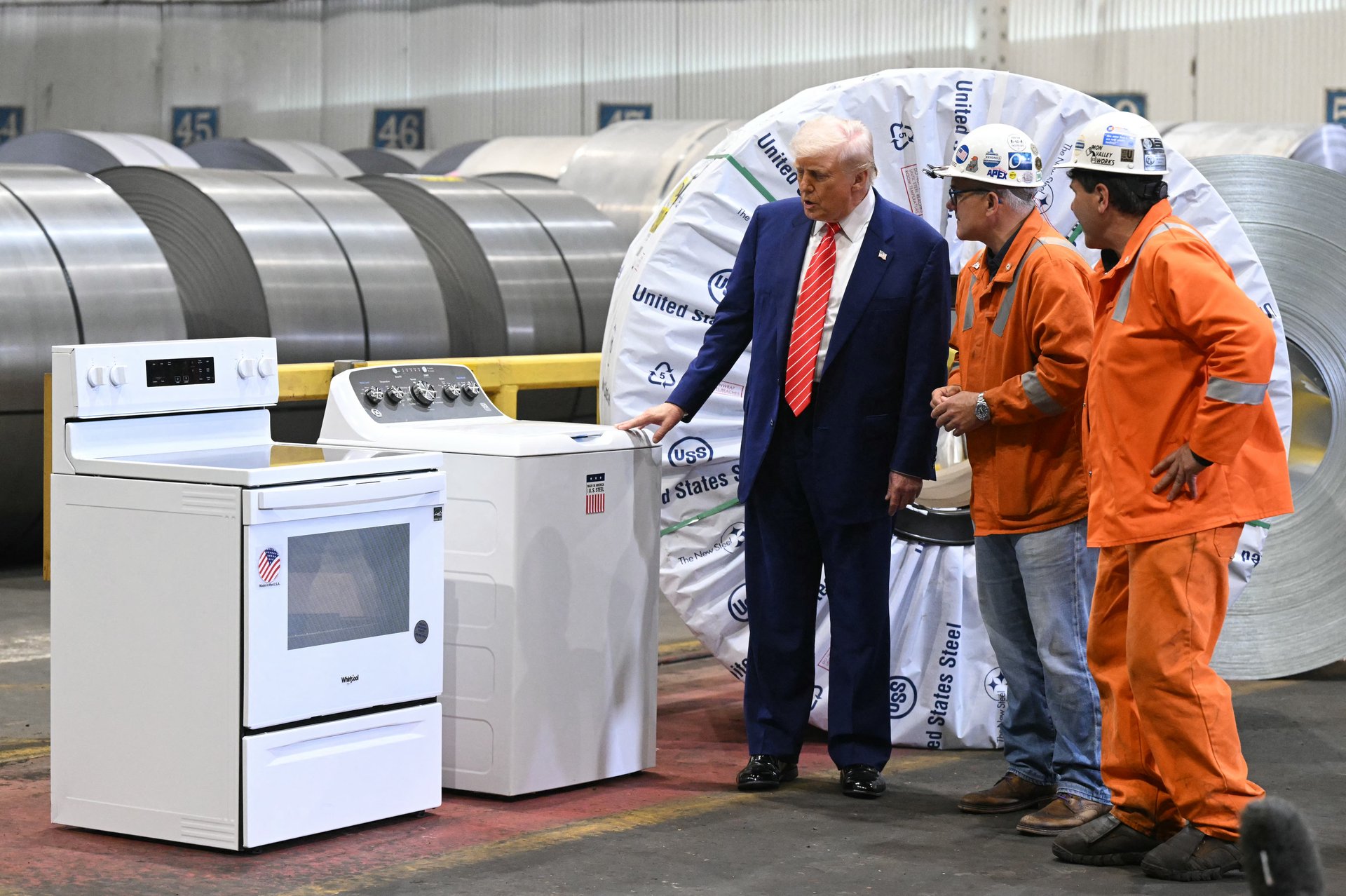Trump's steel tariffs are about to hit washing machines, refrigerators, and more
For the first time, Trump's steel tariffs will directly hit these common household items. More import taxes might be on the way

SAUL LOEB/AFP via Getty Images
The Trump administration said Thursday that it is extending tariffs to household appliances that contain steel and steel parts.
Suggested Reading
The Commerce Department posted a notice that “steel-derivative products” will be subject to new import taxes starting June 23. It's the first time President Donald Trump's tariffs will directly fall on these common household items.
Related Content
The roster of affected appliances include:
- Refrigerator-freezers
- Washer-dryers
- Washing machines
- Dishwashers
- Cooking stoves
The move comes after the Trump administration doubled tariffs on steel and aluminum to 50% last week, part of an ongoing effort to shield American products from foreign competition. Trump said on Thursday he might increase auto tariffs as well from their current 25% level.
“I might go up with that tariff in the not-too-distant future,” Trump said at the White House. “The higher you go, the more likely it is they build a plant here.”
Economists across the ideological spectrum have long held tariffs are a tax that eventually translate into price increases for consumers. Two months into Trump’s trade wars, there’s been a muffled effect on inflation. On Thursday, a new release of the Consumer Price Index showed inflation rose 2.4% in May compared to a year earlier. Experts still expect higher prices to hit American consumers later in the summer as stockpiles dwindle.
Trump’s tariffs on steel and aluminum align with a similar campaign he waged in his first term. He imposed tariffs on foreign-produced washing machines in 2018 to rev up domestic production, but it came at a sizable cost. Subsequent research indicated that 1,800 new jobs were created at a cost of $817,000 per job that was borne by U.S. consumers.